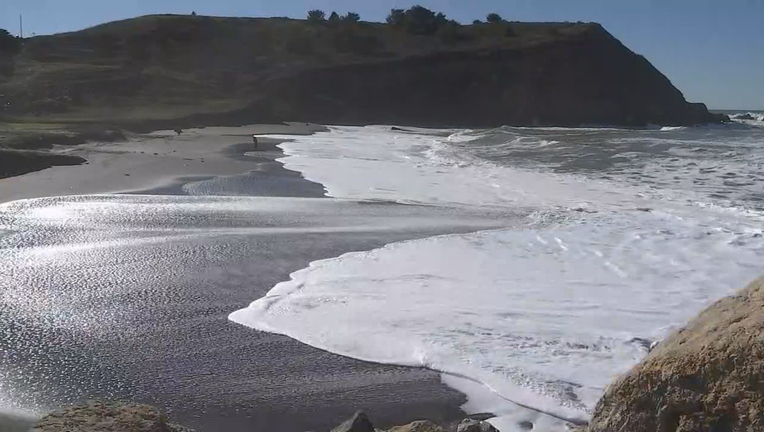California coastal waters are acidifying twice as fast as global average

FILE ART- Pacific Ocean.
OAKLAND, Calif. - A new study found the waters off the California coast are becoming more acidic than the rest of the ocean, prompting a renewed call to reduce carbon dioxide emissions.
Researchers with the National Oceanic and Atmospheric Administration, or NOAA, the lead author of the study, said the trend is happening at an alarming rate; twice as fast as the global average, and is threatening major fisheries. The study was published Monday in the the journal Nature Geoscience.
Ocean acidification is a term used to describe a major shift in the chemistry of the ocean caused by sharp increases in carbon dioxide in the global atmosphere. A portion of this carbon dioxide is absorbed by ocean waters.
As the California Coastal Commission explains, this does not mean that the ocean is turning into an "acid." It does, however, mean that the ocean is becoming more acidic—in other words the pH level of seawater is becoming lower and moving closer to the acid end of the scale.
Ocean acidification happens when carbon dioxide reacts with water to form carbonic acid. The rate of ocean acidification has increased as humans continue to release rampant levels of carbon dioxide through the burning of fossil fuels like oil, coal, and natural gas, the commission described on its website.
In spring of 2013, the atmospheric concentration of carbon dioxide reached 400 parts per million, higher than the earth had seen in more than 800,000 years. Four years later, the number was 410 parts per million.
Some negative impacts have already been documented, such as farmed oyster larva in the Pacific Northwest that can't form shells during low pH events. Laboratory experiments show that elevated carbon dioxide alters clownfish behavior, making them potentially more vulnerable to predators. Also, the commission notes that coral reefs, already impacted by rising ocean temperatures, are greatly threatened by ocean acidification.
There is something that can be done. The California Coastal Commission, along with other scientists and environmentalists, say that the ultimate answer is to reduce carbon dioxide emissions by reducing the use of fossil fuels and conserving energy.

